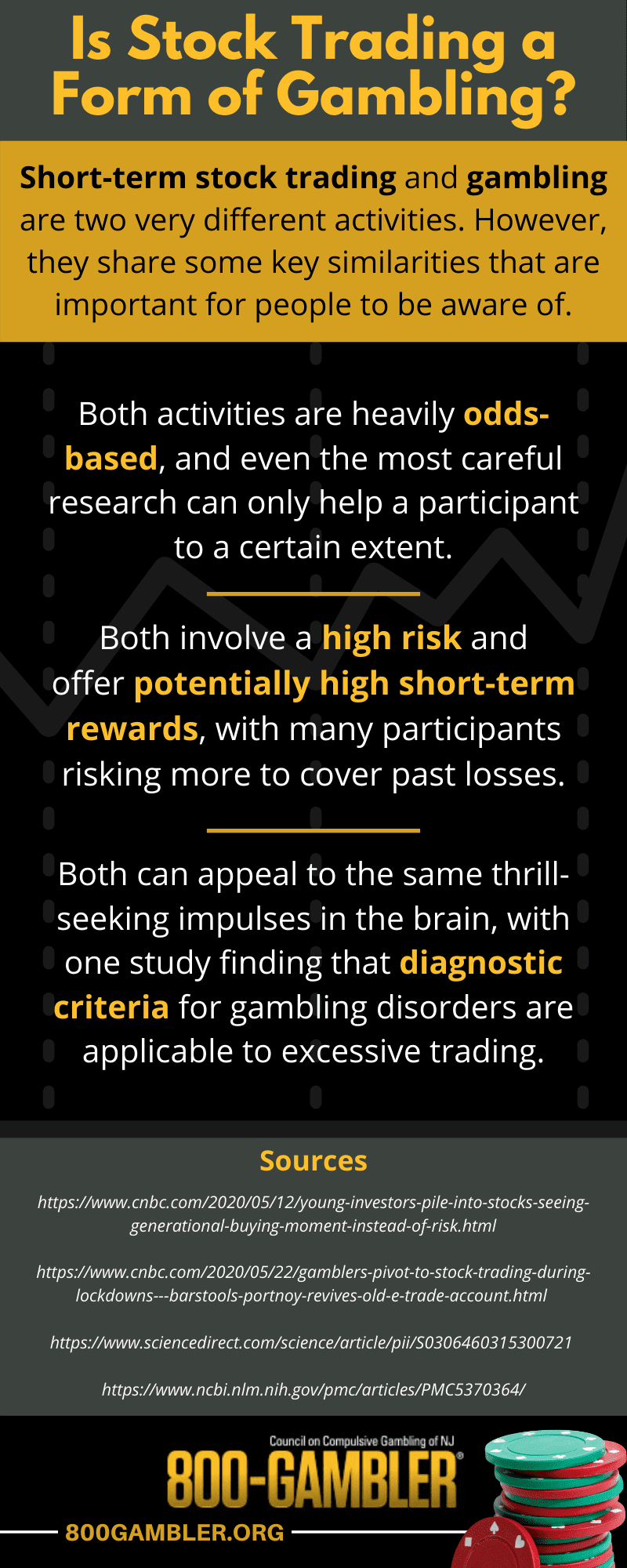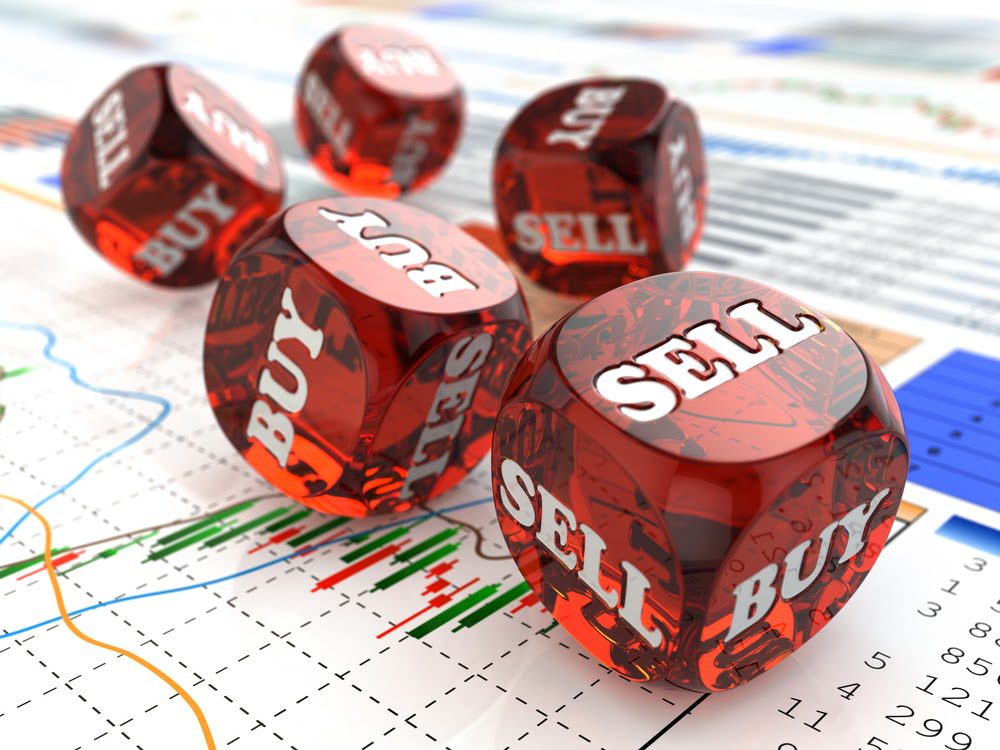Anyone who has traded stocks before knows that there can be a lot at stake — the market can turn quickly, and money can be won or lost at the drop of a hat. Stock trading is the practice of buying and selling stocks frequently in a short time period, and the goal of traders is to time the market and take advantage of short-term influences. Unlike investing, which focuses on a company’s long-term value and growth potential, stock trading is heavily based on the short-term and can often see traders touting and then abandoning a stock all on the same day.
In trading, there are numerous ways that you may be able to predict how a stock will behave in the short term, but at the end of the day, it can come down to odds. This, coupled with the fact that money can be won or lost almost instantly, has led many people to draw comparisons between stock trading and gambling. Examining how these two concepts are similar and how they are different can help us better understand problem gambling behaviors and how they work.

What’s the Connection?
Stock trading, sometimes called “financial speculation,” is a distinctly different concept from gambling that involves its own instruments and knowledge; however, the two activities appeal to many of the same cognitive and motivational attributes of the people who engage in them. Both speculation and gambling involve taking a high risk for a high potential reward, and either winning or losing within a very short time frame. Additionally, the outcomes achieved in both activities are often left up to chance. While traders tend to thoroughly research all of their investments, most of their results yield returns that are no higher than the market average, meaning that similar outcomes could be attained simply by choosing investments at random.
A 2016 study published in the Journal of Behavioral Addictions found that gambling and financial speculation share strong similarities and concluded that “there needs to be greater recognition and study of financial speculation as both a contributor to problem gambling as well as an additional form of behavioral addiction in its own right.”
What’s the Impact?
After studying the evidence, you can see that there are several examples of how the conceptual similarities between speculation and gambling are impacting people in real life. A 2017 study in the Journal of Addictive behaviors looked at the experiences of eight people who were seeking professional help for gambling as “excessive traders.” Similar to problem gamblers, the individuals observed in this study were all high sensation seekers who won early on but wound up chasing their losses and ultimately losing control. The study found that “diagnostic criteria for gambling disorder are applicable to excessive trading.”
Another instance that has seen more comparisons drawn between the two concepts is the Coronavirus pandemic in the United States. Since March, when US sporting events have been cancelled and casinos closed en masse, brokerage firms have marked a distinct increase in retail trading-related activities. With betting in casinos and on sports suddenly eliminated, major online firms like Etrade and Charles Schwab saw a spike in new accounts during the first quarter of 2020.
It can be a difficult decision to seek help for problem gambling, but once you do, getting the help and support you need should be much easier. Please reach out to 800-GAMBLER if you would like to know more about support, treatment, and hope for problem gamblers.
Sources
https://www.sciencedirect.com/science/article/pii/S0306460315300721
https://www.ncbi.nlm.nih.gov/pmc/articles/PMC5370364/
https://www.thebalance.com/the-striking-similarities-between-trading-and-gambling-1345200
https://www.nerdwallet.com/article/investing/stock-market-basics-everything-beginner-investors-know



